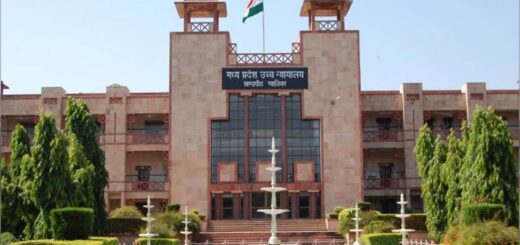The Supreme Court warns that giving too much power to State Police is risky, but removing their power isn’t a good idea either. They support a balanced method for State Police when dealing with ED officials.

The Supreme Court, while reviewing a petition about who should investigate Union Government officers accused of wrongdoing, emphasized the need for a balanced approach, noting that different situations might require different methods. The case arose from a Writ Petition filed by the Enforcement Directorate (ED) against the state of Tamil Nadu after an ED officer was reportedly caught accepting a bribe of several lakhs by the state’s Directorate of Vigilance and Anti-Corruption. The Supreme Court granted bail to the officer on March 20. Today, a two-Judge Bench, including Justice Surya Kant and Justice Ujjal Bhuyan, agreed to schedule a detailed hearing to determine whether central or state agencies should investigate cases involving Union Government officers. Justice Kant remarked that in a federal system, it is essential to ensure that each part maintains its identity.
At the beginning of the hearing, Senior Advocate Amit Anand Tiwari, representing Tamil Nadu, reminded the Court that in the last session, it had agreed to “consider the larger issue.” He argued that some rulings allow state Anti-Corruption Bureaus to investigate Union officers if they are caught in their state, although he did not reference specific cases. Justice Surya Kant pointed out that if a state government were to arbitrarily arrest Union officers, it could lead to a constitutional crisis. He also noted that there might be instances where a central officer’s behavior is so inappropriate that state police must act immediately.
Justice Kant warned that claiming state police will always have power is risky, while saying they will never have power could harm the rule of law and public interest. He suggested that there are many factors the Court must consider before making a decision on this matter. When the defense lawyer spoke, Amit Anand Tiwari argued that the accused cannot choose which agency investigates their case. Justice Kant responded that the accused has a right to a fair trial, regardless of which agency is involved.
The Court did not discuss the case of the arrested ED officer, Ankit Tiwari, in detail, stating, “The accused has not come before us, it is the Union of India versus state.” However, at the request of ED’s lawyer, Advocate Shivam Singh, the Court granted an extension of his interim bail since the investigation was complete. The Court lifted the requirement for the accused ED officer to stay in Tamil Nadu, but he must appear before the Trial Court via video conferencing unless the court needs him present for an important hearing. Amit Anand Tiwari remarked that “Any other accused would not have even got bail. He was caught red-handed taking money,” referring to the accused being filmed receiving money on his car’s dashboard camera.
Cause Title: Directorate of Enforcement v. State of Tamil Nadu [W.P.(Crl.) No. 23/2024]









